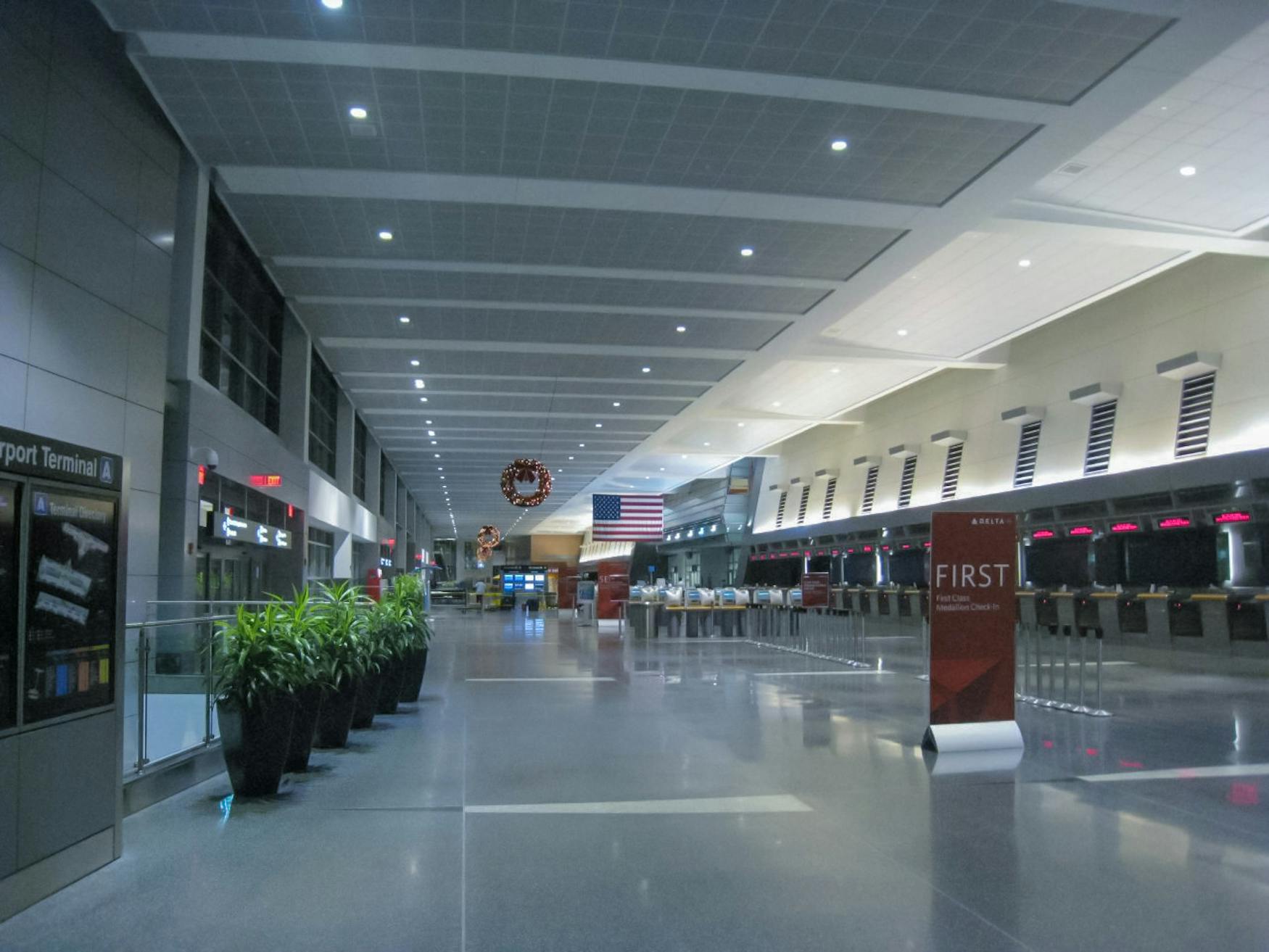Prof. Douglas Smith helps combat ongoing Massachusetts migrant crisis
Massachusetts navigates temporary solutions to housing influx of migrants. Prof. Smith has been committed to the cause for several years now.
Massachusetts has reportedly reached its maximum capacity of migrant influx. However, the issue may not be the volume of people arriving — instead, it may be the local housing crisis.
Earlier this year, migrants from South America, Haiti and other regions of the world were left to sleep on the floor of Boston’s Logan International Airport as the state found migration centers and shelters to place them. As migrants continue to arrive each day, most shelters in the state are at full capacity.
The resettlement process for immigrant families is lengthy. Prof. Douglas Smith (LGLS) is working to provide migrant families with the opportunity to receive asylum.
The Right to Immigration Institute is an organization that was founded in 2016 by Smith alongside a few Brandeis undergraduates. The institute provides migrants with legal representation during the process of seeking asylum in the state. Services provided include legal representation in immigration courts, necessary assistance in finding housing, schooling and protecting them against public harassment on the basis of immigrant status.
In a March 15 interview with The Justice, Smith explained, “At the institute, we train college students as well as migrants and refugees to become accredited department of justice representatives that can do anything I can do as a lawyer in the immigration system.” He said, “We are the only place in the United States that does this, we were the first place to do this and we still remain the only place that does this.”
Smith suggested that Massachusetts' problem may not be the volume of migrants, but rather the fact that there is nowhere to house them long enough to get them on their feet. These shelters are meant to be temporary, but it takes at least six months for most migrants to get work authorization — thus making them an ineffective solution to a larger issue.
Most recently, the Melnea A. Cass Recreational Complex in Roxbury has been converted into an emergency shelter for migrant families while Massachusetts government officials figure out a better, long term solution for the migration influx.
According to Alex Ruotolo, the community engagement director at the Refugee and Immigrant Center of Boston, not all migrants arrive in the U.S. with the same status. In a March 12 interview with The Justice, Ruotolo explained, “Many of the immigrants who have just arrived are from Haiti. Most of them are here on what is called a parolee status that grants them the right to work and the right to federal benefits.”
Unfortunately, the same is not true for others seeking asylum.“It's a problem of the government's own making because they won’t let people work,” Smith said. “It’s a long process that isn’t open to everyone — it isn’t a line you get in like people talk about. You have to fit into very narrow categories. Unless you can make a claim for asylum, have a relative in the U.S. or … win the diversity lottery for a visa, you can’t apply for a work permit.”
Massachusetts is the only Right-to-Shelter state, meaning that they — by law — have to provide housing for migrant families in desperate need. The Massachusetts law is unique because it guarantees housing for entire families, but does not protect homeless individuals.
When families arrive in the state they’re given housing at places like hotels and recreational centers until they are able to handle these things on their own. However, due to issues like lack of space for them and a slow process to begin work, these shelters end up housing migrants for much longer than they initially intended to.
According to Smith, the problem with finding migrants housing is that there is not a specific number of migrants that the state accepts, and there isn’t anywhere to house them. “It's an existing problem here [in Massachusetts] that there is not enough housing and it's becoming increasingly more expensive,” said Smith. “The real commitment would be to let people work. They would fill jobs and could afford their own houses. If they are able to do that, they wouldn't be in shelters.”
As shelters continue to fill up, Smith’s institute remains dedicated to resettling migrant families as soon as possible.
— Editor’s Note: Justice Arts & Culture Editor Nemma Kalra ’26 is associated with The Right to Immigration Institute and was not consulted, did not contribute to, nor edit any parts of this article.



Please note All comments are eligible for publication in The Justice.